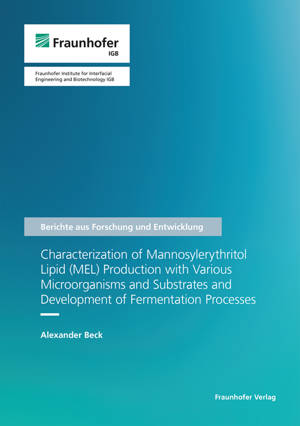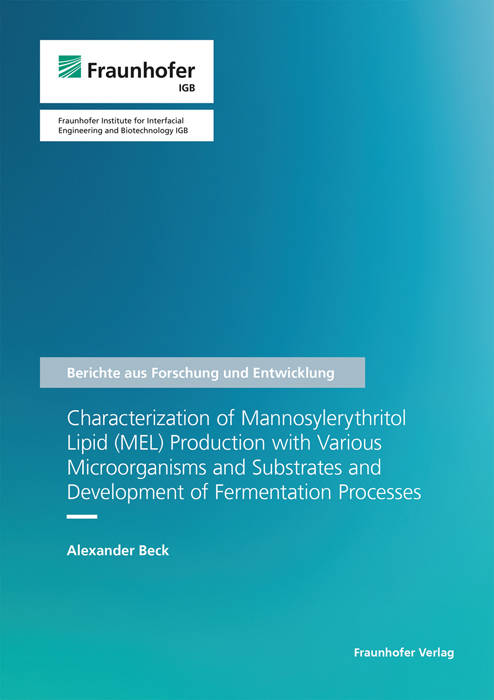
Bedankt voor het vertrouwen het afgelopen jaar! Om jou te bedanken bieden we GRATIS verzending (in België) aan op alles gedurende de hele maand januari.
- Afhalen na 1 uur in een winkel met voorraad
- In januari gratis thuislevering in België
- Ruim aanbod met 7 miljoen producten
Bedankt voor het vertrouwen het afgelopen jaar! Om jou te bedanken bieden we GRATIS verzending (in België) aan op alles gedurende de hele maand januari.
- Afhalen na 1 uur in een winkel met voorraad
- In januari gratis thuislevering in België
- Ruim aanbod met 7 miljoen producten
Zoeken
Characterization of Mannosylerythritol Lipid (MEL) Production with Various Microorganisms and Substrates and Development of Fermentation Processes.
Alexander Beck
€ 70,95
+ 141 punten
Omschrijving
Mannosylerythritol lipids (MEL) are microbial glycolipid biosurfactants with many interesting properties and great potential for commercial application, for example in household detergents or cosmetics. Despite the general interest in those molecules and the need for a robust process, studies on their production in bioreactors are still scarce.
The aim of this thesis was to develop a defined and well-controlled fermentation process for MEL production that can be scaled-up to industrial scale. Seven fungi from the family of Ustilaginaceae were screened for their capability of MEL production in combination with different plant oils and the resulting structures were characterized. A defined mineral medium for cell growth and production was established, and a fed-batch fermentation process was developed for the most promising producer strain Moesziomyces aphidis. The results of this dissertation will contribute to further explore the potential of MEL in surfactant applications and to develop a suitable industrial production process in the future.
The aim of this thesis was to develop a defined and well-controlled fermentation process for MEL production that can be scaled-up to industrial scale. Seven fungi from the family of Ustilaginaceae were screened for their capability of MEL production in combination with different plant oils and the resulting structures were characterized. A defined mineral medium for cell growth and production was established, and a fed-batch fermentation process was developed for the most promising producer strain Moesziomyces aphidis. The results of this dissertation will contribute to further explore the potential of MEL in surfactant applications and to develop a suitable industrial production process in the future.
Specificaties
Betrokkenen
- Auteur(s):
- Uitgeverij:
Inhoud
- Aantal bladzijden:
- 199
- Taal:
- Duits
- Reeks:
- Reeksnummer:
- nr. 82
Eigenschappen
- Productcode (EAN):
- 9783839619094
- Uitvoering:
- Paperback
- Afmetingen:
- 148 mm x 210 mm

Alleen bij Standaard Boekhandel
+ 141 punten op je klantenkaart van Standaard Boekhandel
Beoordelingen
We publiceren alleen reviews die voldoen aan de voorwaarden voor reviews. Bekijk onze voorwaarden voor reviews.









